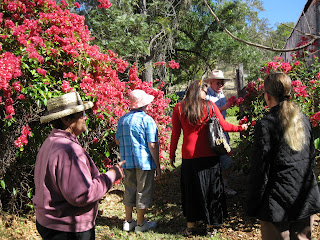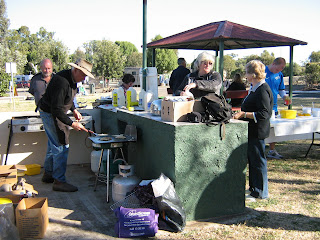





North of Mitchell, at the Major Mitchell Campsite, the river has carved a wide, deep course. The quantity of deposited sand, and the large collections of logs and stick debris -- when combined with the deep U- shaped riverbed -- suggest huge quantities of water roar down this river, at a fast rate.
During the summer months, when the river floods, the Maranoa River is the fastest flowing river in Queensland.
When Doug and I walked downstream, a couple of days ago, we saw these mountains of debris and sand. I felt in awe of this mighty river, the Maranoa.
PS
Yesterday I was unwell, and so missed out on writing my blog. Apologies to my loyal readers.











































